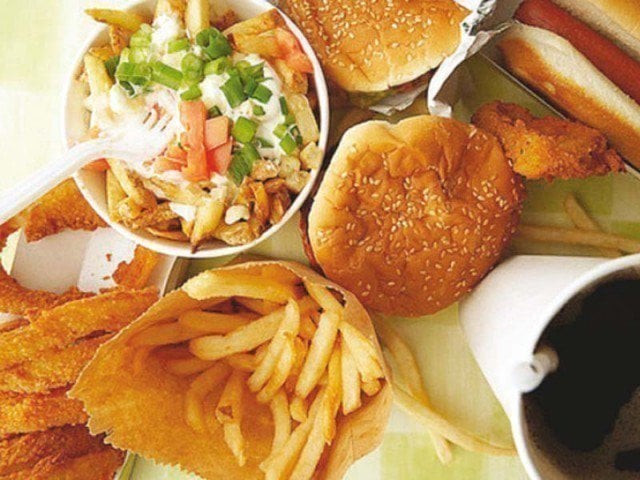‘SFA sealed 13 restaurants, banned 17 bottled water brands in 2018’
Fines of more than Rs20m imposed, 6,027 notices issued throughout the year

PHOTO: FILE
Govt support
According to SFA Operations Director Abrar Sheikh, the authority lacked manpower but the Sindh government has allowed to hire manpower to address the issue. Interviews are being conducted so that the authority can be sufficiently staffed in the coming year. The Sindh government has also provided them with the budget and guidelines for the purchasing process of important goods in accordance with the rules and regulations of the Sindh Public Procurement Regulatory Authority so that the technical and transportation requirements could be met. Sheikh claimed that SFA performed efficiently in its first year of operations even with the limited resources, adding that these efforts would be further improved in 2019.
Data 2018: RCB food dept sent 5,000 food samples for tests in 2018
The first year
The SFA, ever since its establishment in April 2018, has been responsible to ensure that food items sold in the market comply with the principles of public health. It was also responsible to ensure public health under the Sindh Food Authority Act.
Despite the limited resources and manpower, the authority carried out several operations, most of which were in Karachi. According to a report submitted by SFA, the quality of edible items in school canteens and hospitals did not comply with the required principles of health. The SFA issued notices to 30 government hospitals in this regard. Notices were also issued to those private hospitals where quality of food provided to patients was not up to the standards set by SFA.
The authority also found the condition of two government slaughter houses unsatisfactory and issued notices to them to improve conditions.
Furthermore, conditions of hotels and restaurants around Sindh were found unsatisfactory, in response to which 2,859 improvement notices were issued in the initial 275 days of SFA's establishment. The hotels and restaurants were found with unsatisfactory storage of raw materials, lack of maintenance of purchase records and unclean uniforms. Three notices were also issued to ice factories where ice was found to be frozen in stained trays.
Up to 1,643 bakeries and sweet shops were also issued notices to improve their qualities and comply with the standards. Catering centres across the province were also found in poor conditions and unclean - 555 of such catering centres were issued notices.
Ninety-six cattle farms, 96 wholesalers and 120 milk shops were caught comprising on standards while seven packaged milk companies and 91 meat shops and 189 bottled water plants were issued notices. The SFA's operational wing plans to issue final notices to companies manufacturing soft drinks, poultry farms, companies producing poultry feed, flour mills, spices and other packed food items, canteens and kitchens of jails in the coming few weeks.
The SFA also sealed 66 food manufacturing companies which were later allowed to resume operation in the light of satisfactory laboratory reports. These companies included confectionaries, and factories manufacturing nimco [savoury snacks], spices, sweets, ice creams, chocolate, ghee and cooking oil, bottled water, fried onions, pickles, ketchup, mayonnaise, sauces, butter, margarine, milk shops, university canteens and meat shops selling organs.
Thirteen restaurants were sealed while 17 brands of substandard bottled water was banned in Sindh due to unsatisfactory reports from the Pakistan Council of Water Research.
Fine, not fine
The SFA has the power to impose fines of up to Rs1 million and award sentences of six months. Fines of up to Rs2,485,000 were imposed in the first nine months since its establishment on more than 80 food businesses.
Rs1,715,000 had been collected in fines mostly from restaurant owners as Rs1,690,000 were fined on restaurants alone. Rs3,530,000 in fines were imposed on bakeries manufacturing sweets and nimco, Rs60,000 on ice-cream parlours, Rs120,000 on confectionary factories, Rs60,000 on bottled drinking water sellers and Rs25,000 on fried onion sellers.
Cases were also filed by the SFA against illegal factories manufacturing food items. SFA also registered fourteen FIRs in total in which three were against sweets manufacturers, one against a chocolate factory, one against a factory producing ghee from fats and nine against local ghee and cooking oil manufacturing factories.
Food poisoning case: Restaurant owner granted bail
Testing lab
The SFA is looking to establish its own testing laboratory in accordance with the Sindh Food Authority Act 2016 section 25(2). Due to the absence of its own laboratory, the authority gives the confiscated items to private and government laboratories for testing.
These laboratories include SGS, Intertake Pakistan and Pakistan Council of Scientific and Industrial Research (PCSIR). A scientific panel comprising experts had also been formed to assist the authority.
The ban on energy and soft drinks, chips and snacks in the private and government schools' canteens has been imposed in the light of this panel's recommendations. Chinese salt has also been restricted while an immediate ban on the slaughter of new-born calf has also been imposed.
The authority has also placed a ban on the sale of locally prepared oil and ghee. Labels of 'this is not milk' is made mandatory on the packets of tea whiteners. Decision to ban the local sale of spices from September 2019 has also been taken while the use of calcium carbide for ripening the fruits is announced to be banned from September 2019.
Published in The Express Tribune, January 3rd, 2019.



















COMMENTS
Comments are moderated and generally will be posted if they are on-topic and not abusive.
For more information, please see our Comments FAQ